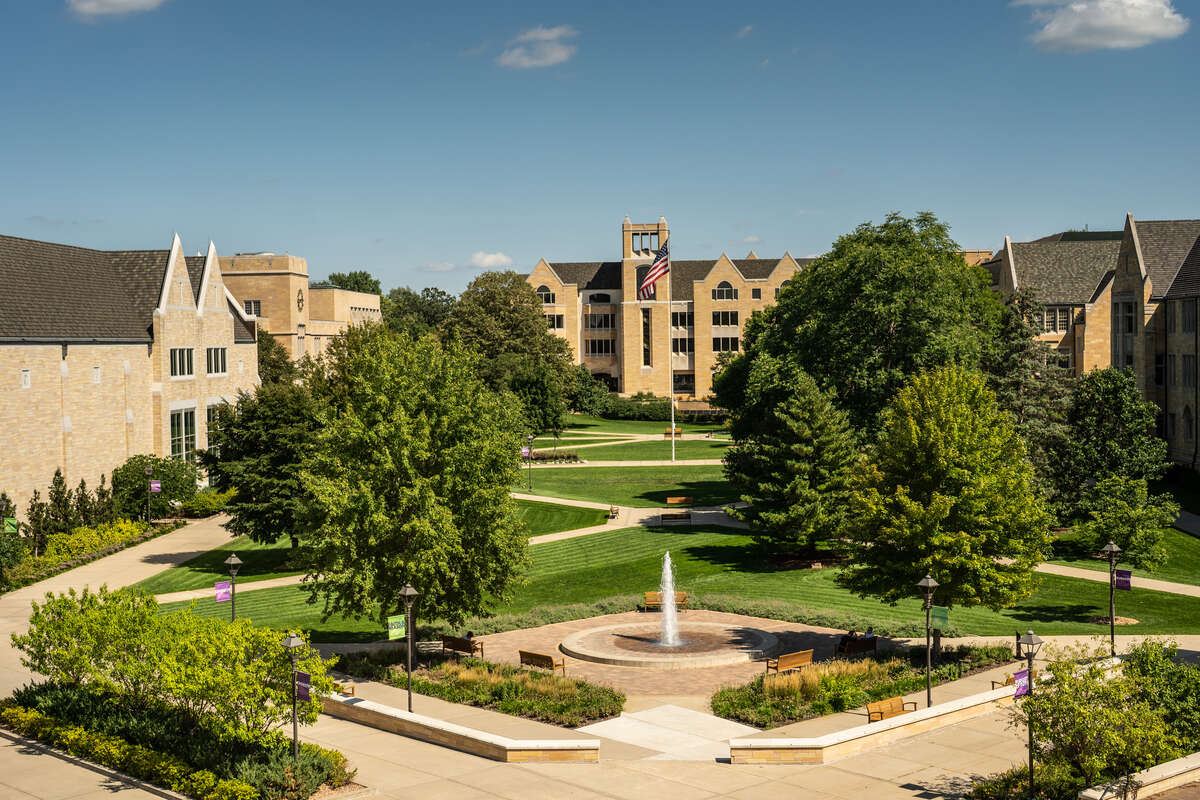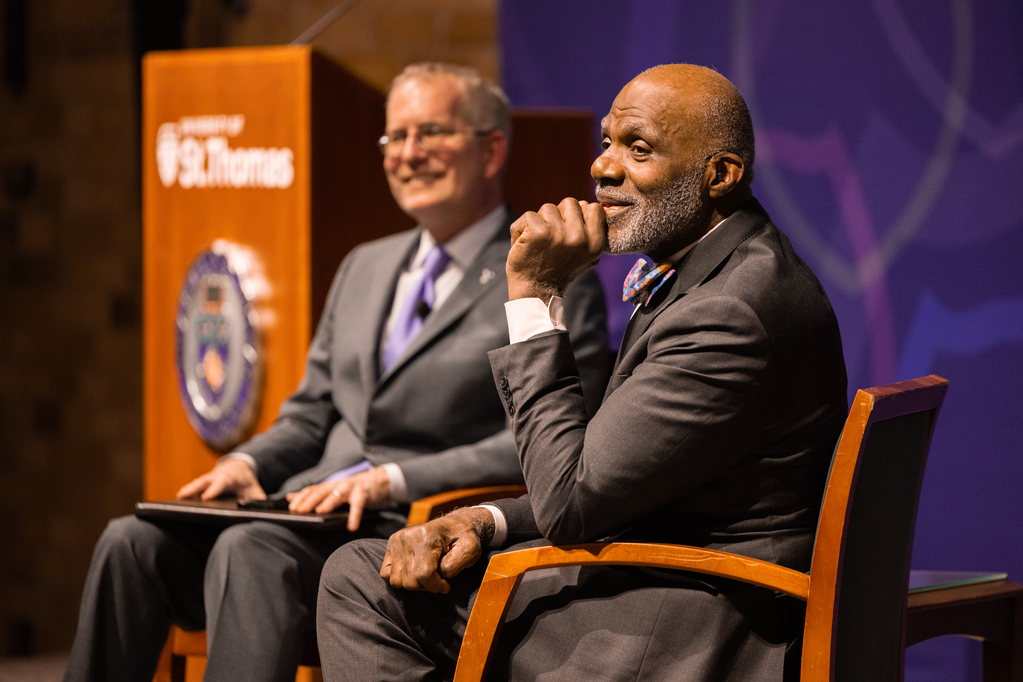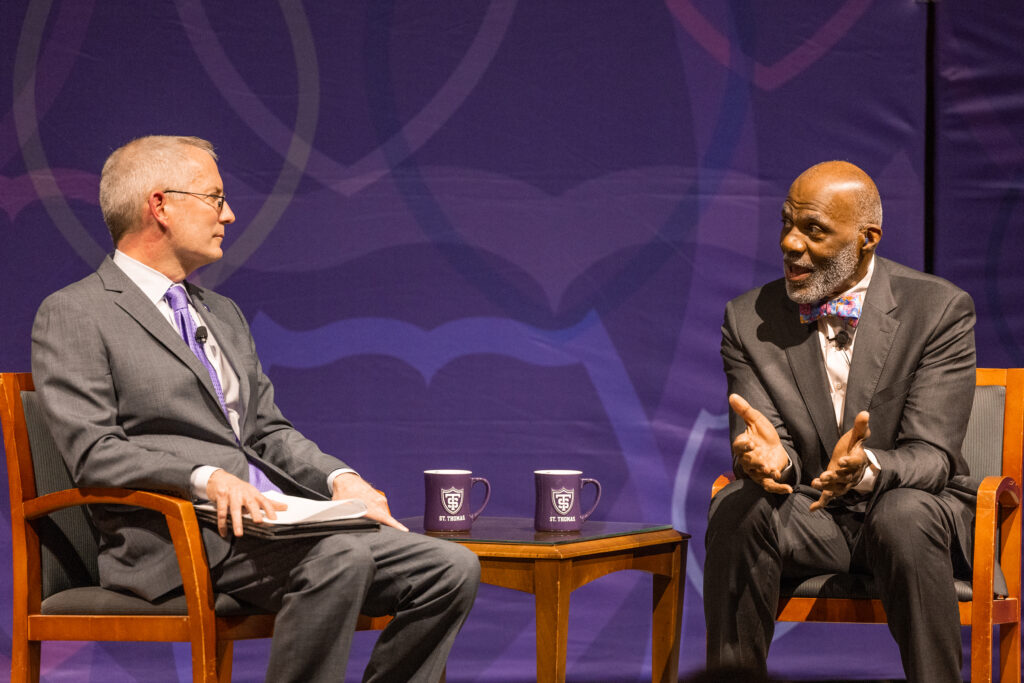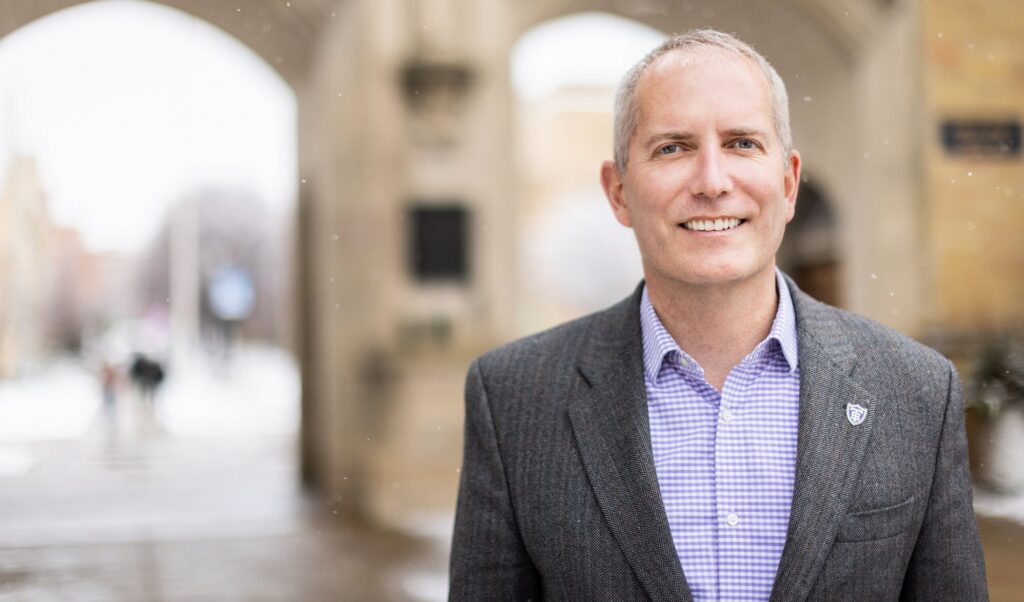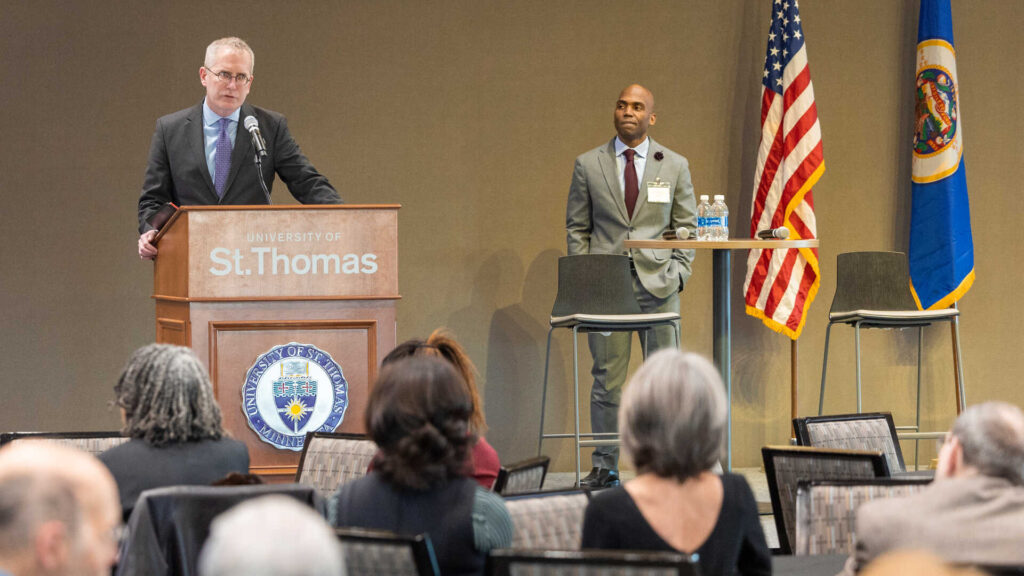Dear colleagues,
Today the Supreme Court ruled that admissions practices used by Harvard and the University of North Carolina violate the Equal Protection Clause of the U.S. Constitution based on how an applicant’s race is considered in the decisions.
Last August, St. Thomas joined dozens of other Catholic colleges and universities in a brief submitted to the Court explaining why our “academic and religious missions require discretion to consider applicants’ racial identities alongside a variety of other factors in admissions decisions.” We offered four arguments why diversity is so important to the religious dimension of our mission:
- First, pedagogy: diversity creates a learning environment that “furthers Catholic values of rigorous thinking, understanding of and empathy toward people of different backgrounds, concern for the . . . underserved, and leadership in service to others.”
- Second, student growth: diversity enhances our mission to “reduce racial stereotyping, in furtherance of the Catholic values of respect for the dignity of all persons and divine creation.”
- Third, social justice: core Catholic commitments make it “a moral imperative to ensure that talented members of underrepresented minority groups have access to the educational opportunities that will enable them to advance and contribute to the public good.”
- Fourth, leadership development: diversity furthers the mission “of developing thoughtful, creative and diverse leaders who will be equipped to contribute to the Catholic goal of service to others after graduation.”
For these reasons, we argued, ensuring racial diversity in our student populations serves a compelling interest grounded not just in the academic freedom of Catholic colleges and universities, but in our religious freedom as well.
The Court’s majority saw things differently, but we need not lose heart. I believe that St. Thomas can continue valuing diversity in all its forms as we recruit and admit students in the coming years. Even the Court’s majority was careful not to preclude all consideration of race in admissions. “[N]othing in this opinion,” the Court concluded, “should be construed as prohibiting universities from considering an applicant’s discussion of how race affected his or her life, be it through discrimination, inspiration, or otherwise.” More broadly, our admissions team considers the whole person in making its decisions, and that focus aligns well with a commitment to diversity.
We will continue to comply with the law, of course. And we will continue to live out our mission, which means that our commitment to build a community that reflects the richness of God’s creation will remain unshakeable.
With warm regard,
Rob
Robert K. Vischer
President
